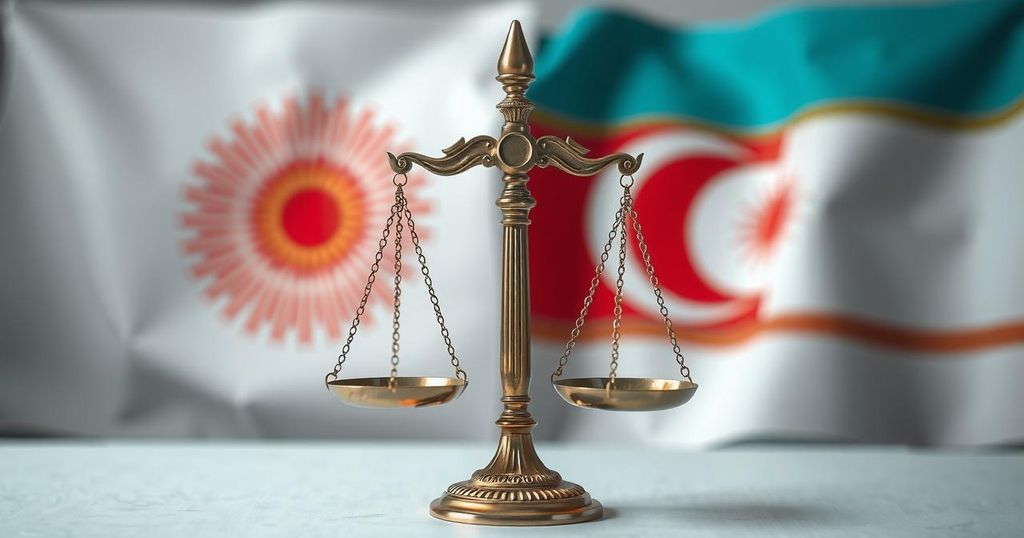Kyrgyz and Uzbek citizens facing legal actions for participating in Russia’s war in Ukraine have received surprisingly lenient sentences. Despite severe potential penalties, many individuals have avoided lengthy incarceration, reflecting the awkward geopolitical stance of these Central Asian nations amidst Russia’s recruitment pressures and the implications of their laws on foreign military service.
The involvement of Kyrgyz and Uzbek citizens in Russia’s war against Ukraine has led to lenient judicial consequences in their respective countries. Following the sentiment expressed by Russian lawmaker Sergei Mironov, who suggested visa restrictions on Uzbeks, Uzbek courts have subsequently indicated that offenders can expect significantly lesser punishments than the maximum 10-year sentences initially threatened.
In Kyrgyzstan, past cases illustrate a pattern where individuals, such as Askar Kubanychbek-uulu, received reduced sentences for enlisting in the Russian military. Despite the Kyrgyz law allowing for harsh penalties, a lack of stringent enforcement, such as unserved probation, allowed Kubanychbek-uulu to re-enlist in Russia shortly after his release. Another case involved Beknazar Borugul-uulu, released under presidential amnesty, who served less than a year for fighting in Ukraine.
Uzbek citizens, similarly, have faced light sanctions for participating in the conflict. An example includes an unnamed local man who had been sentenced to six years but later had his sentence converted to a conditional one. Four others also received non-custodial sentences, sparking debate over the underlying implications of these lenient rulings and the potential influence of Russian pressure in the legal process.
Local commentators have identified the troubling nature of these decisions. Journalist Hryhoriy Pyrlyk remarked on the prioritization of the convicts’ family needs over those of Ukrainian victims, as 13,000 Ukrainian children have lost one parent due to the war. Mukhrrim Azamkhojaev likened the recruitment efforts to a sales campaign promoting the idea that individuals can profit by joining the Russian armed forces.
The shift in legal repercussions for Kyrgyz and Uzbek citizens participating in the war in Ukraine reflects broader geopolitical dynamics. Russian officials have continually exerted pressure on former Soviet states to bolster their military ranks, particularly targeting citizens from Central Asian nations due to their significant labor presence in Russia. This complex relationship illustrates the tensions between national laws and regional allegiances amidst the ongoing conflict.
The experiences of Kyrgyz and Uzbek citizens in relation to Russia’s military operations reveal concerning trends of lenient judicial treatment for individuals who enlist in foreign conflicts. Despite local laws discouraging such participation, the light sentences meted out suggest a broader geopolitical influence and highlight the moral dilemmas posed by such enlistments. As governments navigate complex partnerships with Russia, the implications for international law and human rights remain significant.
Original Source: www.rferl.org




